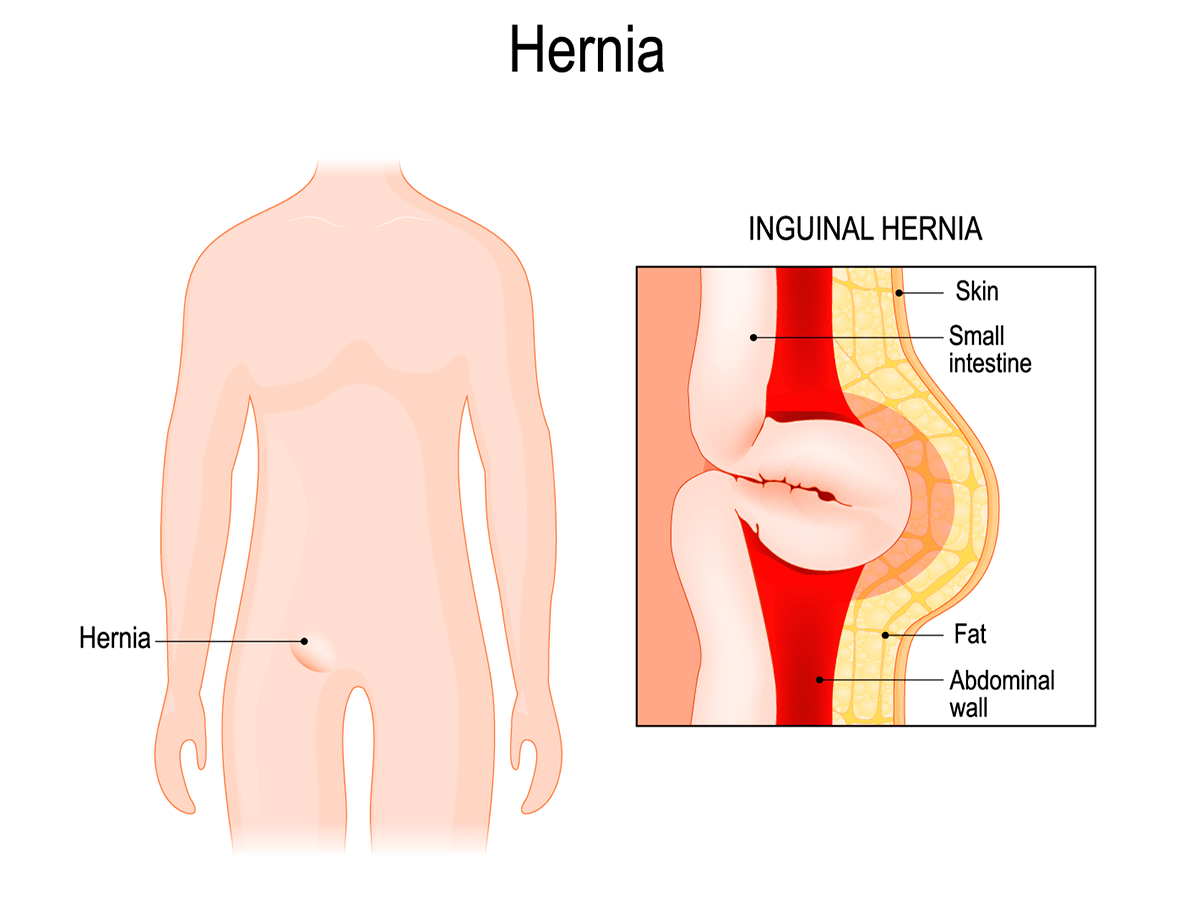- +52 664 761 5349
- contact@tijuanasurgery.com
- Paseo de los Héroes 9211 Edificio Xtal Zona Rio Tijuana BC México 22010

Inguinal hernia is an abnormal bulge in the groin area which is the lower part of the abdomen almost with the leg or in the scrotum (bag where the testicles are located). They are more common in men, but can occur in women and children.

If you cannot push the hernia inward, its contents may become trapped (incarcerated) in the abdominal wall. An incarcerated hernia can become strangulated, which interrupts blood flow to the tissue that is trapped. A strangulated hernia can be life-threatening if left untreated.
Signs and symptoms of a strangulated hernia include:

Nausea, vomiting or both

Fever

Sudden pain that intensifies rapidly

A hernia lump that turns red, purplish or dark colored

Inability to evacuate the bowel or eliminate gas
Hernia repair can be performed in two ways:
1- Open or traditional surgery.
2- Minimally invasive surgery (laparoscopic or robotic).
In both procedures, non-absorbable meshes are used to repair the inguinal floor.
Inguinal hernia surgery is currently a safe, comfortable and recommended method for most patients, however, the indications for traditional or laparoscopic surgery depend on each patient, and the characteristics of the hernia to be operated.
During hernia repair, regional anesthesia is administered to the patient, the procedure can sometimes be performed on an outpatient basis and the patient can leave the same day and return to work and normal life a few days later.
Dr. Javier Cisneros Lopez is a general surgeon specializing in inguinal hernia in the city of Tijuana, Baja California Mexico with 26 years of experience and more than 7,000 procedures performed. If you have any symptoms or doubts about your health, schedule an appointment here to receive medical attention appropriate to your condition.
An inguinal hernia occurs when a piece of tissue, such as a part of the intestine, pushes out through a weakened spot in the abdominal muscles. The bulge that occurs can be painful, especially when coughing, bending over or lifting a heavy object.
Any activity or health problem that increases pressure on the tissue and muscles of the abdominal wall and inguinal region can lead to a hernia, including: Chronic constipation and straining (straining) hard to have a bowel movement or urinating. Chronic coughing or sneezing. As well as there being a certain genetic predisposition to form abdominal and inguinal hernias. Another very frequent cause are hernias that appear in wounds of surgery performed previously.
If you cannot push the inguinal hernia inward, its contents may become trapped (incarcerated) in the abdominal wall. An incarcerated hernia can become strangulated, which interrupts blood flow to the tissue that is trapped. A strangulated hernia can be life-threatening if left untreated.
Signs and symptoms of a strangulated hernia and require emergency surgery are:
When you detect a bulge in your inguinal region or in the scrotal area, you should be evaluated immediately by a general surgeon. The fact of having an inguinal hernia is a risk of presenting a complication of the same.
Seek immediate medical attention if the hernia bulge becomes red, purplish or dark in color, or if you have other signs or symptoms of a strangulated hernia such as abdominal distention, vomiting, abdominal pain.
Currently there are two types of surgical approach for inguinal hernia which are totally safe and with rapid recovery and are:
The general surgeon must evaluate your case and determine which is the most appropriate procedure for your case.
Contact information
Copyrights ©2022 – Tijuana Surgery Center